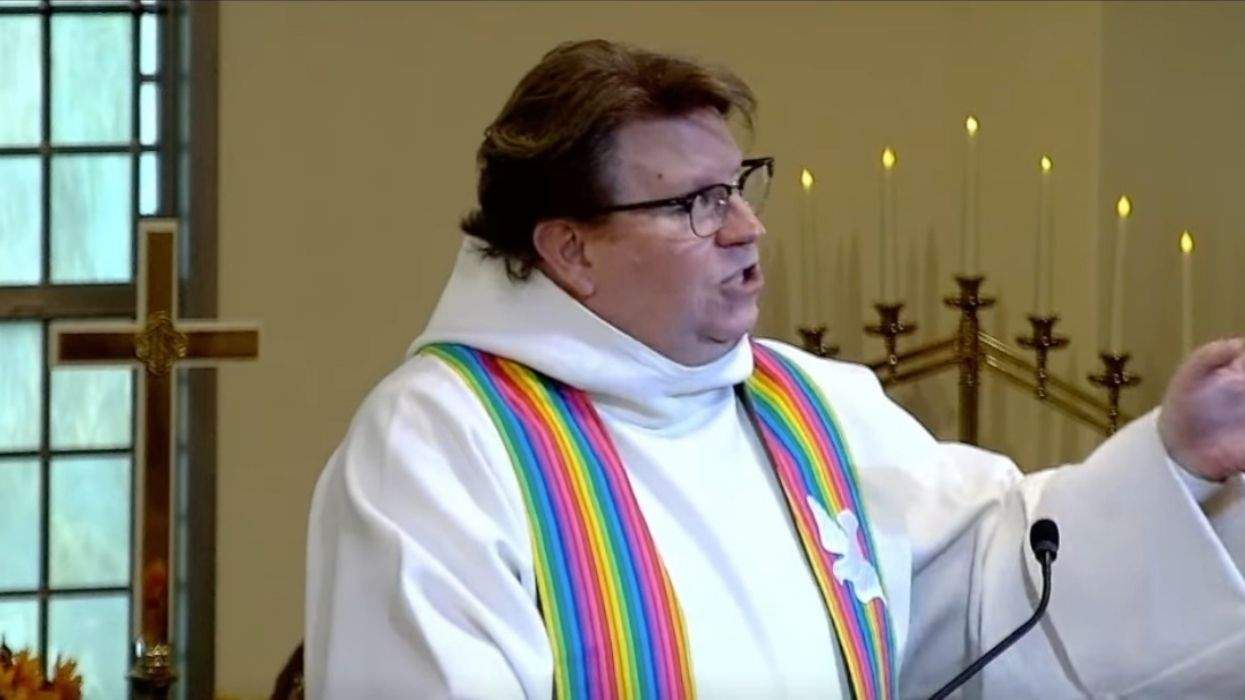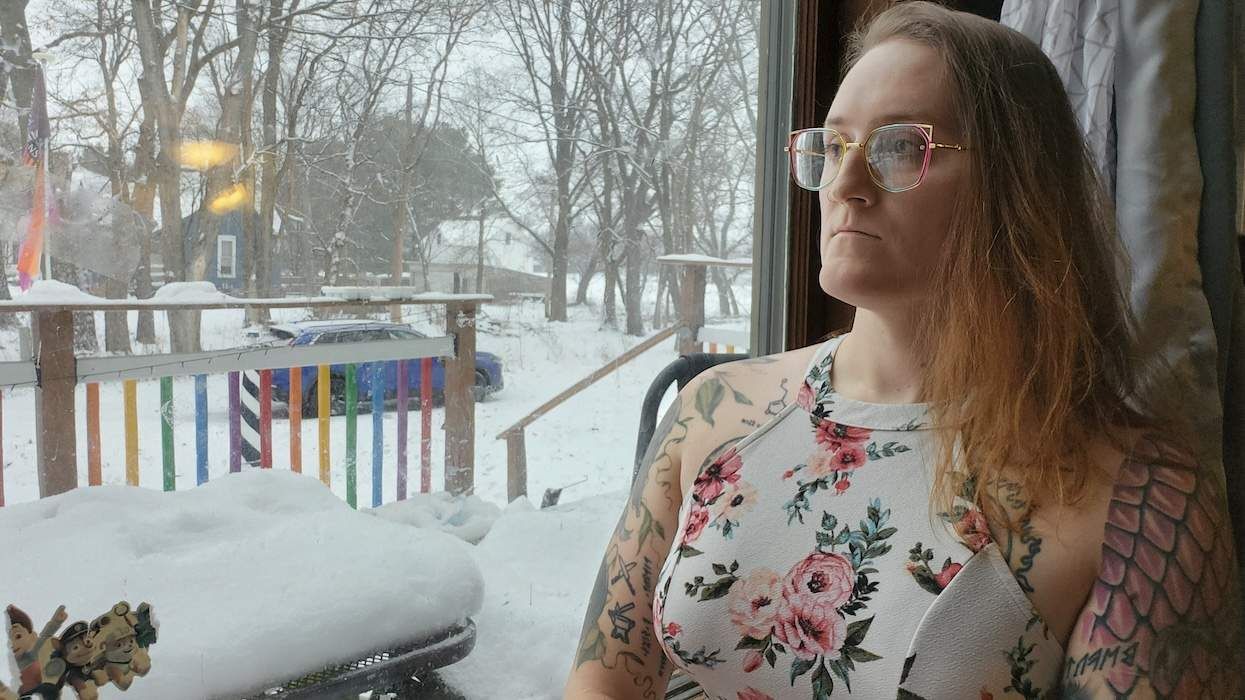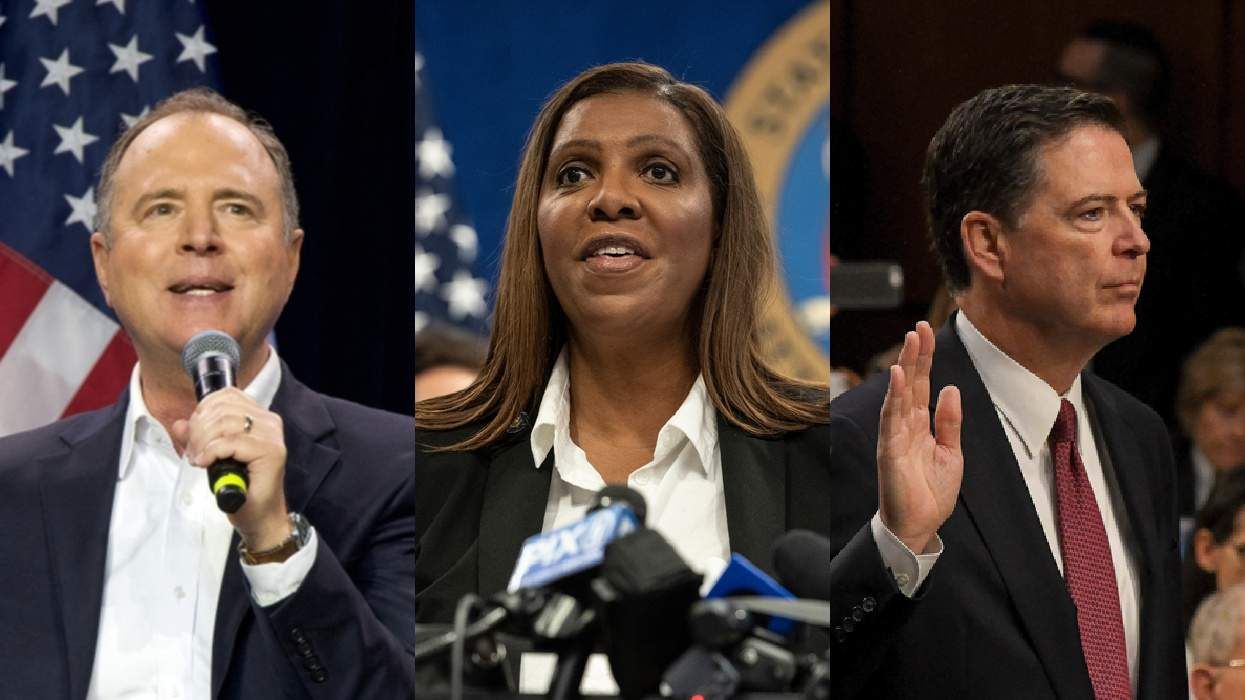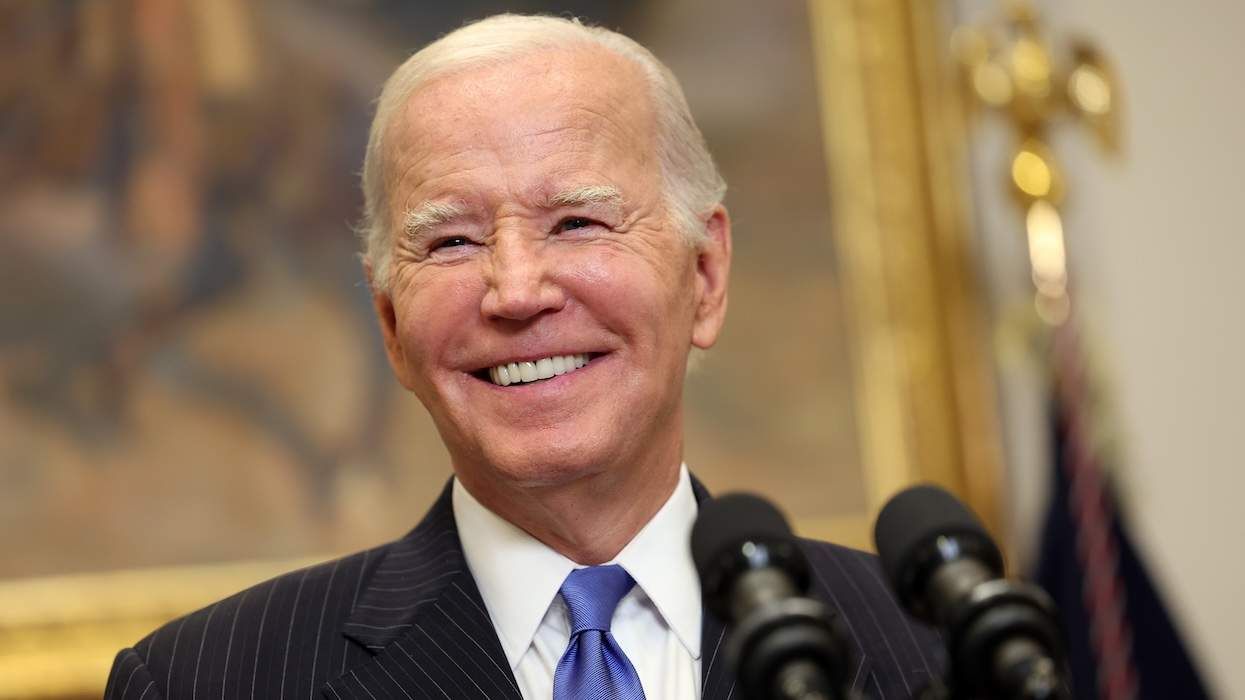CONTACTAbout UsCAREER OPPORTUNITIESADVERTISE WITH USPRIVACY POLICYPRIVACY PREFERENCESTERMS OF USELEGAL NOTICE
© 2025 Equal Entertainment LLC.
All Rights reserved
All Rights reserved
By continuing to use our site, you agree to our Privacy Policy and Terms of Use.
We need your help
Your support makes The Advocate's original LGBTQ+ reporting possible. Become a member today to help us continue this work.
Your support makes The Advocate's original LGBTQ+ reporting possible. Become a member today to help us continue this work.
Just as soon as the Washington, D.C., district council passed a same-sex marriage ordinance 11-2 Tuesday, all eyes turned to Capitol Hill and whether Congress would interfere with the measure.
"We knew we could win marriage in D.C., but the key is going to be defending it," said Michael Crawford, cochair of DC for Marriage.
The U.S. Congress has jurisdiction over all ordinances approved by the district's city government and its residents, and lawmakers can use various methods to either repeal the legislation or stall its implementation indefinitely.
But a number of political insiders, conservatives and liberals alike, believe the bill's timing is as good as any for surviving the first hurdle -- a 30-day congressional review period.
"We haven't heard of any coordinated effort to stop the bill," said one person who works closely with Republicans on the Hill and agreed to speak on the condition of anonymity. The source spoke on Tuesday afternoon with staffers of several very conservative members, none of whom was focused on the legislation.
"The Republican leadership and most members aren't going to be wasting their time on this right now," said the source, noting much bigger battles on health reform, cap-and-trade, and raising the Treasury Department's debt ceiling. "Being in the minority, there's so few opportunities to effect change, they're going to be focused on the big picture."
Crawford of DC for Marriage was "cautiously optimistic" that even the most vocal opponents of the measure, such as Utah's Republican congressman Jason Chaffetz, couldn't stymie the ordinance.
"He's trying to make a name for himself as the new Marilyn Musgrave," Crawford said, referring to the former right-wing Colorado congresswoman who authored the Federal Marriage Amendment in 2004. "We expect him to try something, but we don't expect him to be successful."
Crawford believes the Democratic majority in the House, where Democrats hold 258 seats to Republicans' 177, is just too strong to overcome, and the House leadership strongly supports the district's right to self-govern.
"The speaker is a longstanding supporter of marriage equality and of the District of Columbia making decisions for itself," said Drew Hammill, a spokesman for House speaker Nancy Pelosi.
Based on its rules and a slimmer Democratic majority, the Senate is actually more fertile ground for obstruction. The conservative source said GOP senator Sam Brownback of Kansas had an initiative to ban D.C. gay marriages ready for introduction during the hate-crimes debate earlier this year, but leadership ultimately decided to scrap the effort. But any tinkering would have to pass both chambers.
If D.C. same-sex marriage makes it past the 30-day review period, the final and more unpredictable hurdle is always whether Congress will attempt to ban funding.
D.C. residents, for instance, voted to legalize the use of medical marijuana in the district 11 years ago, but Congress has blocked funding for the program every year since by attaching "riders" to its federal spending bills. But last weekend the Senate approved an appropriations bill that lifted the ban -- an unexpected twist that some observers view as a watershed moment in the relationship between Congress and the district.
But marriage equality activists aren't taking anything for granted and will likely be lobbying members for months to come.
"It's not a question of Congress supporting marriage equality but a question of Congress supporting the right of D.C. to settle its own affairs," said Crawford. "It will likely come down to the D.C. budget process next summer. We'll be keeping an eye on this for a while."
From our Sponsors
Most Popular
Bizarre Epstein files reference to Trump, Putin, and oral sex with ‘Bubba’ draws scrutiny in Congress
November 14 2025 4:08 PM
True
Jeffrey Epstein’s brother says the ‘Bubba’ mentioned in Trump oral sex email is not Bill Clinton
November 16 2025 9:15 AM
True
Watch Now: Pride Today
Latest Stories
7 times Pete Hegseth was the definition of toxic masculinity
December 02 2025 5:46 PM
Man pleads guilty to murder of gay University of Mississippi student Jimmie 'Jay' Lee
December 02 2025 2:32 PM
Florida man partially paralyzed after neighbor allegedly shot him and used anti-LGBTQ+ slurs
December 02 2025 1:30 PM
Queer comedian Cameron Esposito has first baby with wife Katy Nishimoto
December 02 2025 12:49 PM
Trans National Guard employee in Illinois sues Trump over restroom ban
December 02 2025 11:59 AM
Oklahoma University instructor suspended for failing student’s unscientific anti-trans psychology essay
December 02 2025 11:03 AM
Here are all of Trump's political enemies that have been charged or investigated (so far)
December 02 2025 9:52 AM
Joe Biden to receive top honor at LGBTQ+ leadership conference for his contributions to equality
December 02 2025 6:00 AM
On World AIDS Day, thinking of progress and how to build on it in the face of hostility
December 01 2025 7:47 PM
Ex-Biden White House aide called out for implying Cory Booker’s new marriage is suspicious
December 01 2025 6:04 PM
True




































































Charlie Kirk DID say stoning gay people was the 'perfect law' — and these other heinous quotes